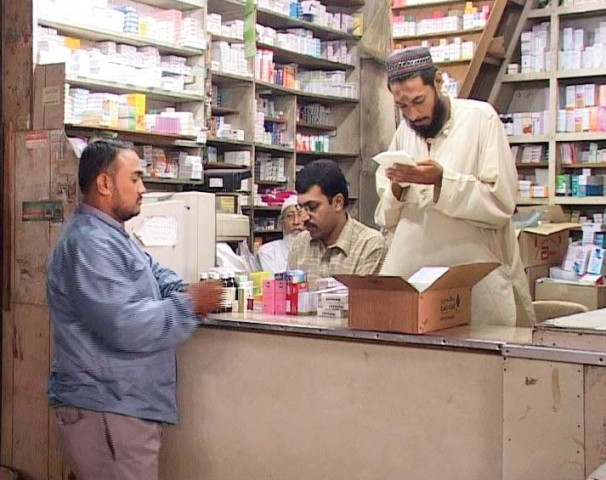Good medicines become dirty business
Opportunists seize even a disaster that has affected millions of lives and manipulate it for their benefit.

Good medicines become dirty business
However, everyone is not out there for the greater good. Opportunists seize even a disaster that has affected millions of lives in the country and manipulate it for their benefit.
After the floods, mortality rates are feared to rise even higher and for a long time to come. Waterborne diseases and many other infections are likely to spread. However, while the demand for medicines is high but the supply seems to be vanishing from drugstores.
The much-needed medicines for dehydration and bacteria have been removed from market shelves and are now being sold at more than double their prices.
According to the president of the Wholesale Chemist Council of Pakistan, Atif Billu, a pack of Distalgesic (pain-killer), which in normal circumstances was available for Rs124, is now being sold at Rs800 rupees per pack. A Lexotanil box is now being sold for Rs400. Black marketing, Billu says, has touched new heights.
“In these testing times when everyone is lending out a helping hand, these black marketers are looting those in danger,” he said, “They [black marketers] have only one aim - mint money at any cost.”
Wholesalers, Nadeem and Raees, said that medicines such as ORS were also short in supply because they are being sold in black.
Medicines for fever, cough, diarrhoea and other common infections along with rehydration salts such as ORS are being bought in bulk by many organisations, groups and individuals working for flood relief. Since relief camps have asked that relief goods be limited to items such as important medicines and other necessary edibles, the demand for these goods has gone up, a situation eagerly seized by some to profit off of. Over 3.5 million children are among the flood survivors at risk of developing diarrhoea, skin infections and severe mental stress.
“These are selfish people who are involved in this crime in such times,” said Raees.
Wholesalers urge that the government has to keep a check on these ‘anti-social elements’ and people who are trying to exploit others’ miseries.
Floodwaters may be receding, but diseases are here to stay for a while, they warn.
Published in The Express Tribune, August 27th, 2010.



















COMMENTS
Comments are moderated and generally will be posted if they are on-topic and not abusive.
For more information, please see our Comments FAQ